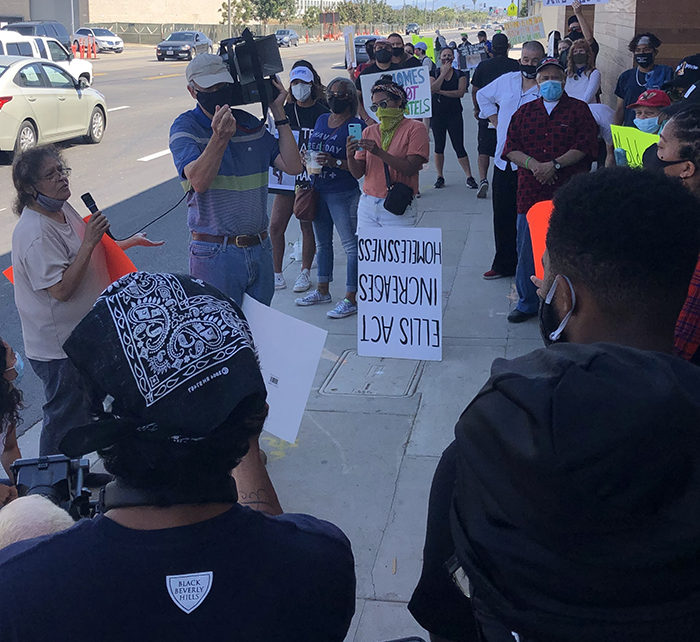With all the hype, what’s the truth about crypto?: The Bottom Line

Cryptocurrency giant Bitcoin shattered records last week, surging above $112,000 per coin and capturing attention from Wall Street to Main Street. With everyone from U.S. Rep. Maxine Waters to President Donald Trump weighing in on cryptocurrency, Black businesses and potential investors — especially those in L.A. — should understand what’s going on.
Major companies like MicroStrategy (now called Strategy) have made Bitcoin central to their business model, buying and holding Bitcoin as a hedge against inflation instead of keeping cash in traditional bank accounts. For Black small business owners, this raises an important question: Could a similar approach work on a smaller scale?
The answer isn’t simple, but it’s important to look beyond the politics and the hype. Cryptocurrency investments can be risky — and the space is full of scams and rip-offs — but they do offer an alternative to traditional banking systems that have historically underserved Black communities.
By allocating a small portion of business profits to cryptocurrencies like Bitcoin, entrepreneurs might protect their savings from inflation while building wealth outside conventional financial institutions. However, it’s important to remember that cryptocurrency isn’t the only way to achieve financial growth — stocks, bonds, and real estate investments can also help grow business reserves.
Trump’s recent cryptocurrency launch, meanwhile, has added political complexity to the Bitcoin conversation. His “memecoin” — named for its online popularity and lack of substantial financial backing — has drawn sharp criticism from Democrats like Waters, the top Democrat on the House Financial Services Committee. Trump drew even more concern when he hosted an exclusive dinner for the largest holders of the so-called $TRUMP coin, which boosted the coin’s market cap by hundreds of millions of dollars.
Such actions made Waters livid.
“Donald Trump and his family’s crypto corruption is the biggest and most egregious scheme in modern history,” Waters said earlier this month. She even pulled the plug on a planned congressional hearing on crypto and digital assets and introduced the “Stop TRUMP in Crypto Act of 2025,” which would prohibit Trump and his family — and any future public officials and their families — from owning, promoting, or profiting from crypto while in office.
But Trump’s questionable crypto ventures shouldn’t overshadow the growing institutional acceptance of cryptocurrencies like Bitcoin. Even Waters said in a recent interview that crypto was “inevitable.”
“There’s got to be guardrails so that we protect consumers,” Waters said. “But, you know, people are going to have to come to an agreement that, yes, we are not afraid of crypto, we’re not opposed to crypto, but we are very much aware that investors have to be protected.”
Major financial players like BlackRock and JPMorgan are taking cryptocurrencies seriously (and professional money managers traded over $1 trillion worth of cryptocurrency in 2022 alone). Wall Street has learned to profit from crypto regardless of price direction, which explains why even former skeptics now encourage client investment.
For Black Angelenos, cryptocurrencies offer unique advantages. Traditional banks and lenders have historically erected barriers that make it harder for Black families to access loans or build generational wealth. Tonya M. Evans, a Penn State Dickinson Law professor, sees crypto as building on longstanding African-American financial traditions.
“Black communities have long practiced alternative finance,” she said, citing mutual aid societies, savings clubs, and informal money pooling practices like susus. “Crypto builds on this tradition, just digitally.”
But even crypto enthusiasts like Evans emphasize the risks that come along with investing in Bitcoin and other cryptocurrencies. For example, Bitcoin’s extreme volatility means prices can swing 20-30% in a single day. Scams are rampant, and because cryptocurrency remains largely unregulated, lost investments are typically gone forever.
“Financial literacy is key. Crypto shouldn’t be a guessing game – it should be a tool we learn to use together, like any other community resource,” Evans says. “We need more grassroots education, less hype. Fewer celebrity endorsements, more neighborhood workshops.”
Bitcoin’s record-breaking surge reflects genuine institutional adoption, not just speculation. For Black business owners and investors, it represents both opportunity and risk – a chance to build wealth outside traditional systems, but one that requires careful consideration and education.
As always, the golden rule applies: If you can’t afford to lose, don’t invest.
Dion Rabouin is The Wave’s new business and digital editor. Feel free to send suggestions and story ideas to Dion@wavepublication.com.





